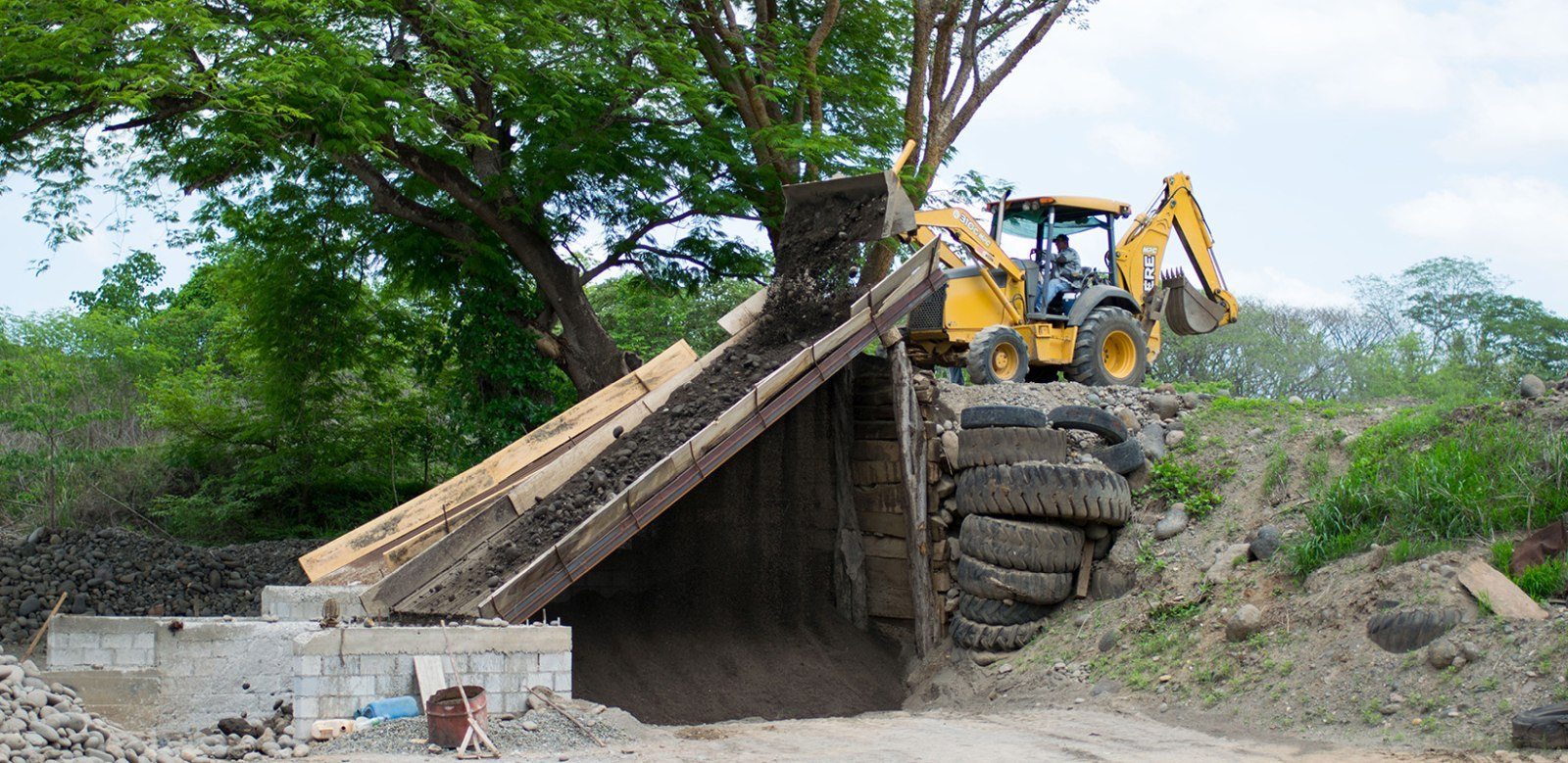
The municipality of Carrillo will continue demolishing buildings, remodels, and swimming pools in spite of the controversy that persists between the council and the mayor’s office.
The process began this past April 26 when the mayor ordered five swimming pools be demolished. This action caused alarm among residents, business owners, and council members in the canton. So much so, in fact, that the municipal council agreed to cease demolitions until it could be certain that the process was being carried out correctly.
Carlos Chanto, vice-president of the Council, presented the motion. Chanto said that it was a precautionary measure to avoid penal and civil suits.
The partial or complete destruction of a property can legally happen when the owners do not have the permits that the Construction Law No. 833 stipulates, according to Nelson Cascante, the Judicial Director for the Municipality of Carrillo.
Cascante said that the municipality notified the owners of the five demolished pools and gave them more than 30 days to get their papers in order.
The Voice of Guanacaste requested the files from the mayor in order to verify that this process was indeed done. We waited a week for those papers but, when this edition went to press, the mayor’s office still had not sent them.
Residents Protest
Among the council members who agreed to stop the demolitions is Enriqueta Abarca, whose brother has properties among the demolished buildings.
Lauriano Abarca, brother of the council member, confessed that he never pulled the permits to build the workers’ quarters that the Municipality tore down:
“They notified me last year. I brought a topographer to help me pull the permits and he told me that I had to make some improvements. I didn’t have time to file all the documents and when I arrived they had already knocked (the workers’ quarters) down,” he said.
Another local resident who protested was the administrator of Serena Suites, Willie Waston, after they destroyed two swimming pools in his neighborhood.
“I’ve been here for two and a half years and I’ve never been notified during all that time. It was a surprise when they said ‘either open the gate or we’ll knock it down,’” said Waston.
Nelson Cascante explained that in some cases the Municipality went up to ten years without carrying out an announced demolition because the municipality’s machinery is used for many things, not just demolishing.
Future Demolitions
The list of things to be demolished includes 84 properties. Homes, sheds, walls, and Christian worship centers are all on that list.
The necessary permits include the project’s environmental feasibility, requesting a land-use certificate, a letter showing the availability of potable water and sewage systems, blueprints, presentation to and approval of blueprints by the Association of Engineers and Architects and, finally, requesting a building permit from the municipality.
“There are administrators who build, get shut down, rip off the “closed” stickers and then sell or rent the place they built. Even in these cases there is a chance to get building permits,” said Nelson Cascante.
Cascante is referring to the three chances that the Construction Law gives property owners before the municipality proceeds with the demolition.
Proposed Solutions
According to the mayor of Carrillo, his intention is that the owners of the 84 buildings erected without municipal authorization will acquire the necessary permits to avoid demolition.
In a Council session this past June 20, the mayor requested council members modify the municipal building code to make the permitting process easier for buildings that measure less than 35 square meters.
Cantillo proposed asking owners for a sketch of the property instead of professionally made blueprints.
Council member Freddy Gómez proposed creating a commission to study the files of properties about to be demolished in order to ensure that they have all been properly notified. Roberto Canales, president of the Council, supports that idea.







Comments